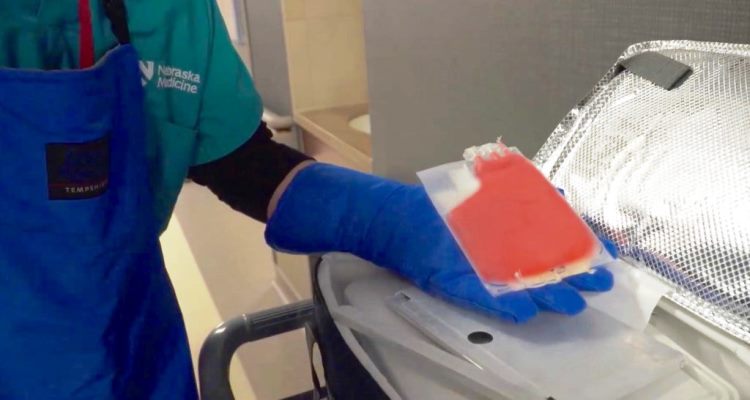
What is multiple myeloma? Multiple myeloma is a bone marrow cancer that involves plasma cells which have become cancerous. Plasma cells, a type of white blood cell, are an important part of the immune system. Plasma cells make antibodies, a type of protein, which help fight infections. When the plasma cells become cancerous and become myeloma cells, the protein that is made is an abnormal form of antibody, referred to as the “M-protein” (for monoclonal protein). High levels of this M-protein can cause kidney damage and even lead to kidney failure. Other problems caused by multiple myeloma include anemia (low red blood cell count), high blood calcium levels, bone damage, and increased infections. The bone damage is caused by weakened areas in the bones (called lytic lesions) and this can cause bone pain and even lead to fractures.

Sarah Holstein, MD, PhD
What are the signs and symptoms of multiple myeloma? There is no one symptom that is specific for myeloma. Some people experience worsening fatigue or unexplained weight loss. Other people experience bone pain or an unexpected fracture. On routine blood work, signs of myeloma include anemia, elevated creatinine (a sign of kidney damage), or high protein levels. These findings may cause your doctor to order additional testing to more specifically look for multiple myeloma.
What are the risk factors for getting multiple myeloma? The cause of multiple myeloma is not yet fully understood. It is known that the risk of myeloma increases with age and the median age at diagnosis is 66 years. Men have a slightly higher risk than women. African-Americans have a 2-3 times higher risk than Caucasians.
What tests are used to diagnose multiple myeloma? Blood tests are used to check the blood counts, kidney function, and to look for the M protein. Urine samples are also obtained as the M protein can be found in the urine. A bone marrow biopsy is performed in order to directly sample the bone marrow. This test can determine whether the plasma cells which are present are normal or abnormal and determine how many plasma cells are there. Normally, 1-2% of all of the bone marrow cells should be plasma cells. One of the criteria for diagnosing myeloma is that more than 10% of the bone marrow cells are plasma cells. A series of x-rays (called a bone survey or a skeletal survey) is performed in order to screen for weakened areas in the bones. In addition, more detailed imaging such as a CT scan, MRI, or PET/CT is sometimes ordered.
How is multiple myeloma treated? As multiple myeloma is a systemic disease (is throughout the bone marrow of the entire body), the predominant form of treatment is chemotherapy, which typically involves a mixture of oral medications (pills) as well as shots or intravenous infusions. For patients who are younger than around 75 years of age and do not have other significant health problems, treatment also includes high-dose chemotherapy with an autologous stem cell transplant. In this procedure, the patient’s healthy bone marrow stem cells are first collected and later given back to the patient to allow the bone marrow to recover following the high-dose chemotherapy. Radiation therapy to a particular area of the body is sometimes used if there is disease in that area that is causing significant pain or harming the surrounding area.
What are the goals of treatment? The goals of treatment include achieving disease control so that the complications from multiple myeloma such as bone damage or kidney damage do not occur, to improve quality of life, and to prolong life. At this time, multiple myeloma is generally not considered to be curable, however, as new treatments emerge, it is the hope that one day, this disease will be curable.
To schedule an appointment with a multiple myeloma specialist at Nebraska Medicine, call 800-922-0000.
